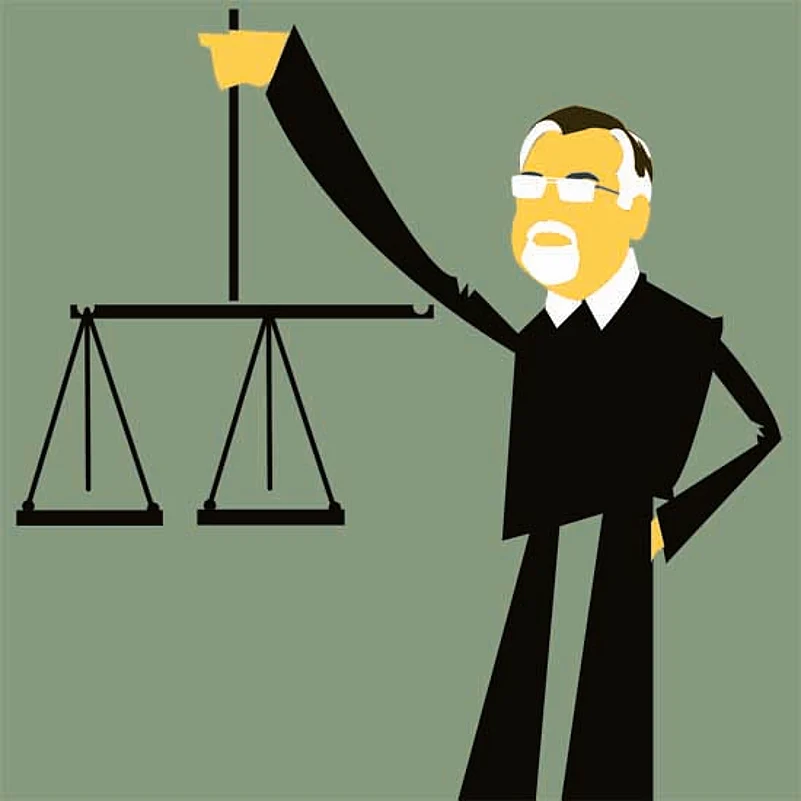It’s hard to find Delhi lawyers or the media saying nice things about Goolam Vahanvati these days. Though Delhi lawyers are often an unkind lot, and much of the criticism is justified, some of it is perhaps deliberate overstatement. As a lawyer, Vahanvati is at heart a corporate guy. Before he became solicitor-general of India and 2004 and was smoothly promoted to attorney-general in 2009, corporate lawyers were happy to sing his praises. A lawyer who instructed Vahanvati for a client’s legal opinion years ago described him as “legally excellent”—and “very practical”, which for many might be damning by faint praise. But for corporate lawyers it often doesn’t get better than that.
Advocates in India have a lot of conflicting masters. According to the Bar Council of India (BCI), lawyers must balance their duties to the court, the client, their opponent and other advocates. It’s essential that lawyers can be trusted not to subvert the process. Lawyers must also represent their clients’ interests within the oft-fluid processes of a functioning legal system.
Apart from fees, the biggest gripe companies have is that many advocates understand the law better than they understand the client’s needs and business. Commercially unpopular lawyers (the majority in the profession) will write lengthy legal opinions explaining why the client could get in trouble for what they’re doing. It’s only the more successful ones who address how the client might accomplish what he or she wants to get done staying within the law—even if it ends up creaking slightly.
The attorney-general, as such, is a strange beast. At one level, he’s just another advocate, but one appointed by and serving “during the pleasure” of the President, under the Constitution, which also states that attorneys-general should be qualified enough to have become Supreme Court judges. Implicit is the hope that such seniority would serve to check government excess. Some past attorneys-general have paid service to that hope; Vahanvati has behaved more like someone who seemingly sees himself as the government’s trusted advisor than a constitutional conscience-keeper.
Internationally, he’s not the only one with such a view. Alberto Gonzales, who served as attorney-general under US president George W. Bush, controversially sanctioned government torture and invasive surveillance of citizens. Lord Goldsmith, attorney-general of England and Wales under Tony Blair’s government, was criticised for bending over backwards to issue the opinion in 2003 that the invasion of Iraq over wmds was lawful.
For the government, such an advisor is exceedingly useful, as a legal buffer for questionable actions and as a legal PR flak-jacket. Vahanvati has proved especially adept as the latter; his personality has apparently allowed him to shrug off any blows. In the 2G and Coalgate cases, there has been much public discussion on his apparent lack of strategy and finesse before the court, and his flip-flopping opinions, arguably sucking up airtime from the actors who were actually responsible. If Vahanvati’s clients were companies, this wouldn’t have been uncommon or unwelcome.
Sometimes, he just seems unlucky. His son-in-law Tariq Carrimjee, the founder and senior partner of a financial brokerage in London, was fined £89,000 two months ago for “recklessly” helping a Dubai-based private client avoid a $3 million loss by manipulating financial instrument prices. The client himself faced a fine of $9.6 million (reduced 30 per cent for cooperating with the probe), putting the regulator’s view of Carrimjee’s wrongdoing into some perspective. But when reading about the case, it looks nearly inconceivable that Vahanvati was even aware of his son-in-law’s actions. Nevertheless, though the fine was not very widely covered in the Indian media, in the popular consciousness, Vahanvati was judged guilty by virtue of relation.
By the high ethical standards the rest of the senior legal profession likes to think of itself as aspiring to, Vahanvati can be faulted for having too much ambition and not enough of professional backbone to stand up to a government’s increasingly grey demands (or to just walk away from the often thankless and unpleasant job, as a string of other solicitors-general and additional solicitors-general have done under his watch). On the other hand, Vahanvati’s future political career or promotion prospects are likely to hinge more on the electorate than on being in the ruling party’s good graces. And if he were to return to private practice, he might never become a standout star of the bar as Harish Salve is, for instance, but he might well be appreciated for what he is by at least a few companies.
(The writer is founder and editor of LegallyIndia.com, a news website for lawyers, and LegallyDirect.com, which connects consumers and lawyers.)


























